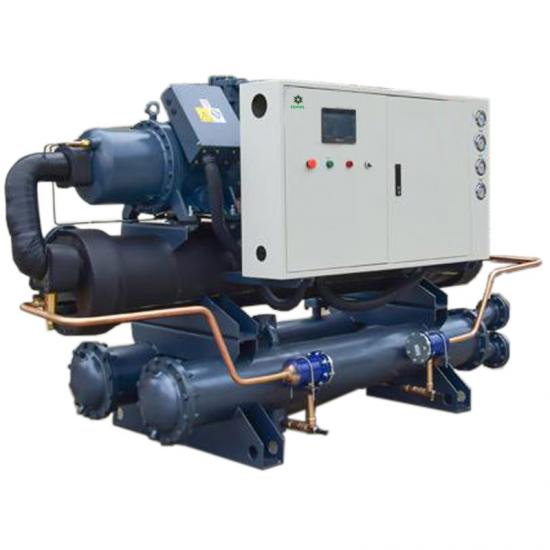Using glycol in chillers offers several advantages, including:
Lower Freezing Point: Glycol mixtures have a much lower freezing point than water, which prevents the coolant from freezing in the chiller system, especially in low-temperature applications. This property makes glycol ideal for environments where temperatures can drop below the freezing point of water.Improved Heat Transfer Efficiency: Glycol enhances the heat transfer properties of the coolant, which can improve the overall efficiency of the chiller system. This results in better cooling performance and energy savings.

Corrosion Inhibition: Glycol-based coolants often contain corrosion inhibitors that protect the metal components of the chiller system from rust and corrosion. This extends the lifespan of the equipment and reduces maintenance costs.
Enhanced Fluid Stability: Glycol solutions are chemically stable and less likely to degrade over time compared to other coolants. This stability ensures consistent performance and reduces the need for frequent fluid replacement.
Wide Temperature Range: Glycol chillers can operate effectively across a wide range of temperatures, making them suitable for various industrial applications, from low-temperature cooling to high-temperature heat rejection.
Reduced Risk of Biological Growth: Glycol inhibits the growth of bacteria and algae, which can be a problem in water-only systems. This reduces the need for biocides and other chemical treatments, lowering maintenance costs and complexity.
Non-Flammability: Most glycol solutions are non-flammable, making them safer to use in environments where flammable coolants might pose a risk.
Compatibility with Various Systems: Glycol is compatible with a wide range of materials commonly used in chiller systems, including metals and plastics, reducing the risk of material degradation or failure.
Lower Viscosity at Low Temperatures: Glycol solutions maintain lower viscosity at low temperatures compared to pure water, which helps in maintaining fluid flow and reducing the load on pumps and other components.
Environmental and Safety Considerations: Propylene glycol, in particular, is less toxic and more environmentally friendly compared to ethylene glycol. This makes it a preferred choice in applications where there is a risk of coolant leakage into the environment or contact with food and beverages.
SHENZHEN OUMAL REFRIGERATION MACHINERY CO.,LTD. :
Our factory has been committed to the design and manufacture of glycol chiller system for more than 15 years.Welcome to order industrial glycol chiller system.Factory direct sale!
评论
发表评论